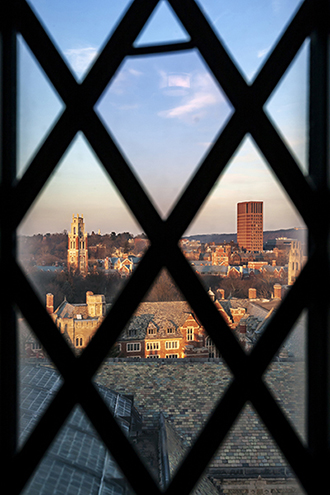
“I’ve struggled with what I can say about the killing of George Floyd, Ahmaud Arbery, Breonna Taylor, and so many others. Their deaths expose the persistent systemic racism in American society. The library's commitment to fight this racism is reflected in our community values. Words are important, but insufficient. In this moment, I am challenging myself and my colleagues to find new ways to strengthen the structures and culture of Yale University Library so that we do our part in addressing the challenges of systemic racism and injustice.
“At an individual level, so many Black and African-American members of our community are experiencing grief, anger, fear, frustration, and many other emotions. I recognize their pain, and I offer them my deepest respect and support.
“Yale Library collections include powerful expressions by Black individuals of their lived experiences as well as historical evidence of the efforts of individuals and organizations to celebrate Black culture and fight racism. These include the James Weldon Johnson Memorial Collection at Beinecke Rare Book and Manuscript Library; documentation of the 1970 May Day Rally and Yale in Manuscripts and Archives; the papers of the Rev. Samuel N. Slie, New Havener and Yale alumnus who worked against racism and for peace and justice, in the Divinity Library; and interviews with African-American composers and musicians in Gilmore Music Library’s Oral History of American Music Collection.
“Going forward, the library will increase its efforts to serve as a broadcast channel for the powerful words, images, film, and other expressions of Black lives. We will prioritize access to these important cultural resources through digitization, such as the recent addition of 11,000 new images from the papers of Langston Hughes to Beinecke Library's online collections. We will also continue our commitment to collaborative efforts like the Black Bibliography Project that explore how “bibliographic and cataloguing practices have to change in order to accommodate Black print culture and its modes of production, dissemination, and use.”
“These initiatives leverage the library’s collections to bring Black voices to the fore and prioritize making Black collections available for teaching, learning, and research. But these initiatives must be a catalyst for additional ideas and meaningful actions. We must also grapple with hard questions about what we can do individually and as a library community to re-examine power structures and confront systems of oppression and the conditions under which they persist.
“This work is still to be done. I pledge that we will undertake and continue it.”
-- Susan Gibbons, Stephen F. Gates ’68 University Librarian and Vice Provost for Collections & Scholarly Communications